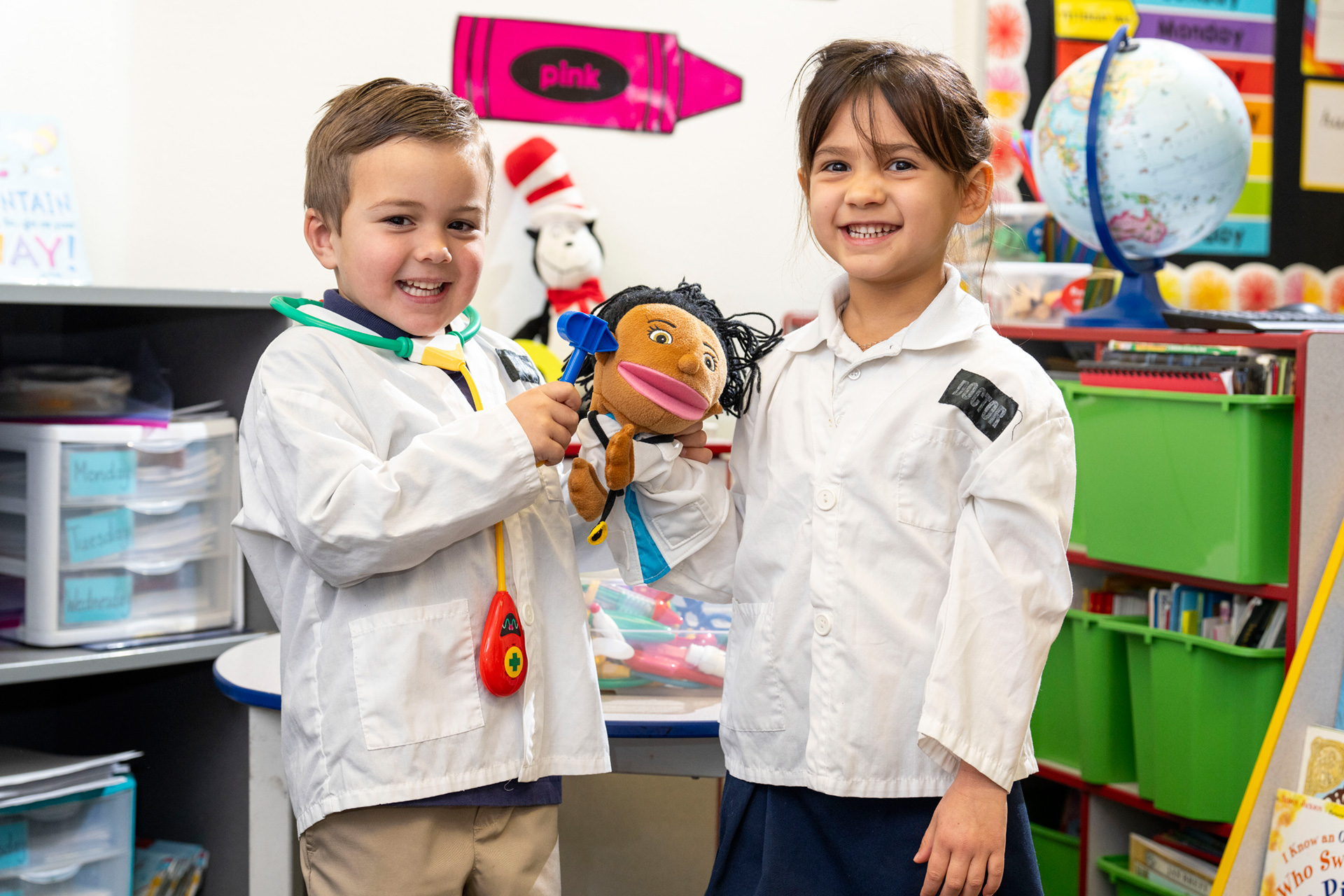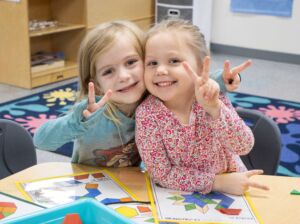Creative outdoor science experiments for Grade School students
All Concerning Grade Institution: Essential Realities and Enriching Experiences for Youthful Learners
Elementary school plays a critical function fit young students' futures. It encompasses crucial academic topics and nurtures social skills via structured interactions. In addition, after-school activities provide chances for creativity and teamwork. Parental participation further enhances this foundation, sustaining kids in their academic journeys. As these elements link, they develop an extensive instructional experience. What certain strategies can moms and dads and teachers employ to optimize this growth?
Comprehending the Quality School Curriculum
As pupils begin their grade school journey, they encounter an educational program made to build fundamental skills and knowledge throughout numerous topics. This curriculum usually includes core locations such as mathematics, language arts, science, and social studies. Each topic is structured to grow essential reasoning, creativity, and problem-solving capabilities, important for future scholastic success.
Language arts concentrate on analysis, creating, and communication abilities, cultivating pupils' ability to express themselves plainly. Math presents standard ideas, consisting of enhancement, subtraction, and later on, reproduction and division, preparing for much more intricate problem-solving. Scientific research motivates questions and exploration, stiring up interest about the environment, while social researches instills an understanding of neighborhood and social diversity.
In enhancement to core topics, the educational program often consists of arts and physical education, offering a well-rounded instructional experience that promotes both intellectual and physical advancement. Subsequently, elementary school offers as a necessary system for long-lasting learning.

The Framework of Elementary School Education And Learning
While elementary school education differs by region and institution, it typically adheres to a structured structure that promotes progressive knowing. Usually, elementary school incorporates a variety of qualities, frequently from preschool with 5th or sixth grade, relying on the educational system. Each quality degree represents specific developmental milestones, with curricula designed to build on prior expertise.
Courses are generally arranged into core subjects, including mathematics, language arts, science, and social researches, making certain that trainees receive a well-rounded education. Guideline usually combines straight training with hands-on tasks, promoting involvement and important reasoning.

Assessment techniques vary however generally include projects, quizzes, and examinations to evaluate pupil understanding. Furthermore, educators often work together to develop interdisciplinary devices, boosting the discovering experience. Generally, the framework of elementary school education and learning aims to grow foundational skills, prepare pupils for future academic challenges, and advertise a love for discovering that extends beyond the classroom.
Social Skills Development in Early Learners
Grade school education and learning not just concentrates on academic abilities but also plays a considerable duty in the growth of social skills among early learners. Throughout these developmental years, kids participate in different activities that motivate interaction, cooperation, and communication with peers. Team tasks and cooperative knowing settings provide opportunities for kids to exercise sharing, working out, and dealing with conflicts.
Organized playtime cultivates vital skills like empathy and understanding, as youngsters learn to react and recognize to the sensations of others. Via assisted social interactions, teachers help trainees create essential listening and conversational skills. As children browse friendships and team dynamics, they acquire confidence in their social abilities.
The Function of After-school Activities
After-school activities play a significant duty in boosting the instructional experience of elementary school pupils by giving avenues for personal development past the class. These activities permit trainees to explore interests and talents, promoting creativity and self-expression. Involvement in sporting activities, songs, art, and clubs grows teamwork, management abilities, and a sense of belonging.
Additionally, taking part in such activities advertises physical health and wellness and well-being, urging trainees to keep an active lifestyle. Kindergarten. Extracurricular programs likewise work as a system for trainees to construct friendships and establish social skills, which are necessary for their overall advancement
As trainees browse their rate of interests outside of academics, they acquire valuable experiences that add to their positive self-image and resilience. Eventually, these tasks play an essential duty in shaping all-around individuals, preparing them for future obstacles both in and out of the classroom.
Supporting Knowing With Adult Involvement
Parental involvement greatly improves Visit Website the academic trip of elementary school trainees, as it cultivates an encouraging environment that enhances knowing. Involved parents add to their youngsters's academic success by attending institution events, helping with homework, and preserving open communication with instructors. Grade School. This participation not only improves students' motivation however likewise grows a sense of belonging and self-worth
Research shows that children whose moms and dads are proactively entailed have a tendency to have higher qualities, much better attendance, and boosted actions in institution. Additionally, adult engagement motivates the advancement of essential life abilities, such as time monitoring and responsibility.
Schools can promote this participation by organizing workshops, providing sources, and encouraging normal feedback. By developing collaborations between parents and educators, elementary school can guarantee an extensive strategy to trainee development. Inevitably, adult participation works as a foundation for fostering a positive educational experience, profiting both pupils and the college neighborhood as a whole.
Frequently Asked Concerns
What Are the Typical Grade Institution Hours for Pupils?
Typical elementary school hours for pupils typically range from 8:00 AM to click here now 3:00 PM, varying by district. Numerous schools include a lunch break and recess, making certain pupils have time to recharge throughout the day.
How Do Quality Schools Address Diverse Discovering Needs?
Quality institutions address diverse learning demands through distinguished guideline, tailored lesson plans, and assistance services, making sure all trainees obtain proper sources. Educators team up with professionals to produce comprehensive settings that cultivate private growth and involvement.
What Is the Duty of Modern Technology in Elementary School Education And Learning?
Technology in elementary school education boosts discovering with interactive devices, personalized discovering experiences, and access to large resources. It promotes cooperation amongst teachers and trainees, preparing kids for a technology-driven future while sustaining varied educational requirements.
How Can Parents Assist With Research Efficiently?
Parents can aid with homework efficiently by producing a structured environment, motivating self-reliance, supplying resources, and supplying support without straight giving responses. Communication with teachers likewise improves understanding of assumptions and advertises academic success.
What Are Typical Challenges Dealt With by Grade College Pupils?
Typical difficulties dealt with by elementary school students include difficulty with time management, recognizing complicated ideas, keeping focus throughout lessons, steering social characteristics, and stabilizing scholastic obligations with extracurricular activities, every one of which can affect their total performance.
As pupils commence their quality institution trip, they experience an educational program developed to develop foundational skills and understanding across various subjects. Normally, grade school encompasses an array of qualities, usually from preschool through 5th or sixth quality, depending on the academic system. Extracurricular activities play a considerable role in enhancing the instructional experience click here for info of grade college students by providing methods for personal growth past the class. Parental participation greatly improves the academic trip of grade institution students, as it fosters a helpful environment that reinforces discovering. By developing partnerships between moms and dads and educators, quality schools can ensure a thorough technique to pupil development.